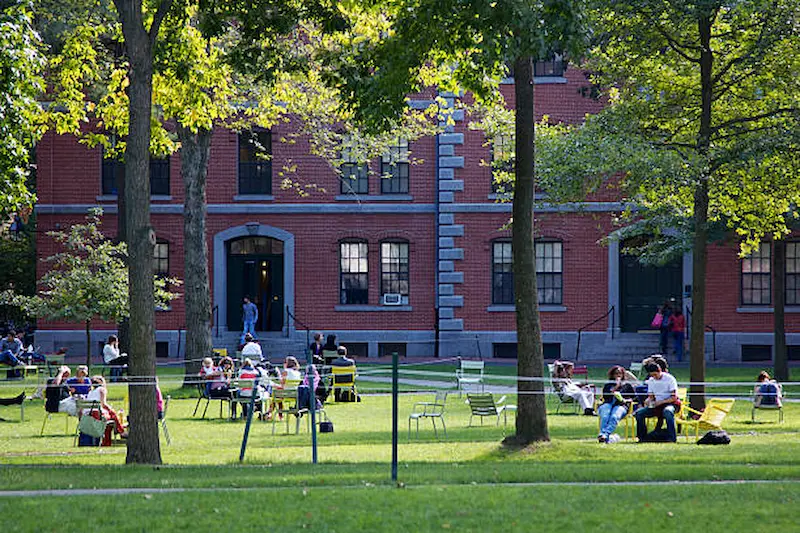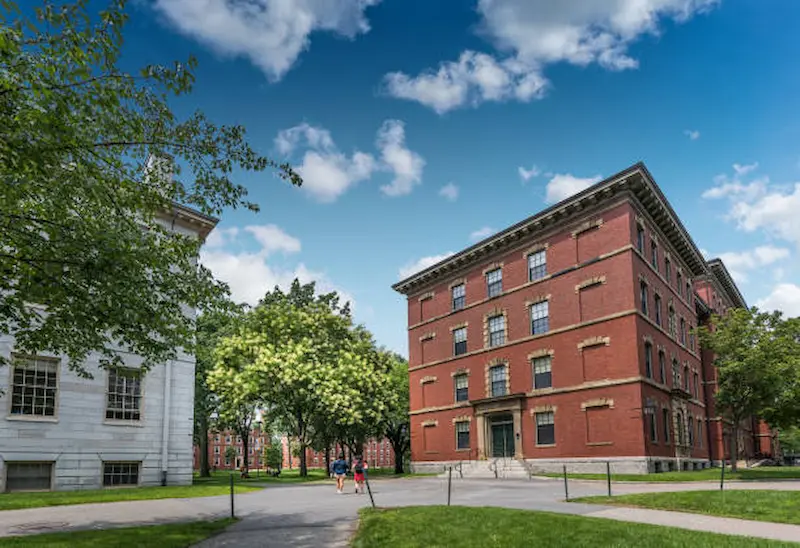Ivy League institutions, known for their prestige and academic excellence, hold a unique appeal. These elite universities, including Harvard, Yale, and Princeton, offer world-class education, extensive resources, and a powerful alumni network. However, the application process is highly competitive, requiring exceptional grades, test scores, and impressive extracurricular achievements. While the allure of an Ivy League education is strong, it’s essential to consider whether the specific programs and campus culture align with your goals and values.
Additionally, it helps demystify the admissions process, ensuring that students and parents are well-prepared to make informed decisions that match their aspirations and aspirations. In a competitive academic environment, a comprehensive guide can be the key to unlocking educational opportunities and achieving success.
In this blog, we delve into the world of Ivy League schools, renowned for their academic excellence, rich history, and selective admissions. Join us as we explore the allure, challenges, and unique characteristics that define these prestigious institutions.
Table of contents
What Are Ivy League Schools?

The Ivy League refers to a prestigious group of eight private colleges and universities in the northeastern United States. Established in the mid-20th century, these institutions are renowned for their academic excellence, selective admissions, and rich histories. The term “Ivy League” originated from the ivy-covered buildings on these campuses, symbolising tradition and excellence. In this blog, we not only explore the world of Ivy League schools but also offer insights into extracurricular activities for kids, helping them prepare for future educational endeavours.
As of September 2021, the eight Ivy League schools are Harvard University, Yale University, Princeton University, Columbia University, Brown University, Dartmouth College, the University of Pennsylvania, and Cornell University. These institutions consistently rank among the top universities globally and offer a wide range of academic programs and opportunities for students.
The Admissions Process
The admissions process for colleges and universities has become increasingly competitive in recent years. As more students seek higher education, institutions face a surge in applications, making admission rates lower. Top-tier schools, especially, see a deluge of exceptional candidates, intensifying the competition. Applicants must understand this landscape’s competitiveness and prepare accordingly.

A. Holistic application review:
Many institutions, particularly elite ones, employ a holistic approach to application review. Beyond test scores and grades, they consider personal essays, recommendation letters, extracurricular activities, and interviews. This approach allows admissions committees to assess the whole applicant, looking for qualities like leadership, character, and diversity of experiences.
B. Crafting a standout application:
To succeed in a competitive environment, applicants should focus on crafting a standout application. This involves showcasing their unique strengths, passions, and contributions. Tailored essays, strong letters of recommendation, and a well-rounded portfolio can help candidates make a lasting impression. Additionally, aligning their application with the institution’s values and culture demonstrates a genuine interest in the school, further enhancing their chances of admission. Alongside these application strategies, we’ll explore creative crafts for kids that can foster their self-expression and develop valuable skills, ultimately aiding in their academic and personal growth.
Academic Excellence
A. Ivy League academics: what sets them apart:
Ivy League institutions are renowned for their unparalleled academic rigor and excellence. They offer world-class faculty, cutting-edge research opportunities, and a challenging curriculum that fosters critical thinking and intellectual growth. The Ivy League’s commitment to academic excellence is reflected in its consistently high rankings and the exceptional achievements of its graduates.

B. Academic resources and support:
Ivy League schools invest heavily in academic resources, including libraries, laboratories, and technology. They also offer comprehensive support services such as tutoring, career counselling, and research opportunities. Leveraging these resources is key to thriving academically and achieving one’s educational and career goals within the Ivy League’s demanding academic environment. Additionally, we’ll provide recommendations for books for kids that can inspire and prepare them for the rigorous yet rewarding academic journey these institutions offer.
Extracurricular Activities

A. The role of extracurriculars in Ivy League admissions:
Extracurricular activities play a crucial role in Ivy League admissions, showcasing a candidate’s leadership, passion, and commitment beyond academics. Admissions committees value well-rounded individuals who can contribute to the campus community.
B. Building a compelling extracurricular profile:
To stand out, focus on quality over quantity. Dedicate time to a few activities you’re truly passionate about, aiming for leadership roles or significant contributions. Highlight your impact and growth in these pursuits. Additionally, we’ll discuss effective strategies for building a strong extracurricular profile and recommend board games for kids that can not only be enjoyable but also enhance their decision-making and strategic thinking skills, qualities highly valued by Ivy League admissions committees.
C. Tips for time management:
Balancing academics and extracurriculars requires effective time management. Prioritise tasks, create a schedule, and learn to delegate when necessary to excel both in and outside the classroom.
Standardized Tests
A. SAT vs. ACT: Choosing the Right Test
When deciding between the SAT and ACT, consider your strengths and preferences. The SAT focuses on evidence-based reading and writing, while the ACT covers English, math, science, and reading. Some students perform better on one than the other, so take practice tests to gauge your comfort. Check with colleges you’re interested in to see if they have a preference.
B. Test Preparation Strategies
Effective test preparation involves consistent practice, time management, and targeted study. Utilise official test prep materials, online resources, and prep courses. Focus on weak areas and take full-length practice tests to build endurance. Don’t cram; spread out your study sessions to retain information better.
C. Test-Optional Policies
Many colleges now offer test-optional admissions, allowing applicants to decide whether to submit test scores. Research each school’s policy to determine if it’s advantageous for you. A strong academic record, extracurriculars, and essays can compensate for test scores in a test-optional application. Consider your strengths and the specific requirements of your chosen colleges to make an informed decision. Additionally, we’ll discuss the relevance of IQ tests for kids in the context of college admissions, exploring whether they can play a role in showcasing cognitive abilities and potential beyond traditional standardised tests.
Scholarships and Financial Aid
Navigating the costs of higher education is a significant concern. Scholarships and financial aid are essential resources that can alleviate the financial burden. Research scholarship opportunities, grants, and loans offered by institutions and external organizations to make higher education more accessible and affordable.
The Interview
Preparing for an Ivy League interview is crucial. Research the school, practice common interview questions, and formulate thoughtful questions to ask. During the interview, maintain good eye contact, speak confidently, and showcase your passion. Afterward, send a thank-you note expressing your continued interest in the institution, reinforcing a positive impression. Additionally, we’ll provide guidance on age-appropriate questions for kids to ask during interviews, helping them make a memorable impression and gain valuable insights about the schools they aspire to attend.
Letters of Recommendation
Letters of recommendation hold great weight in Ivy League admissions. Choose recommenders who know you well, can speak to your character, and provide specific examples of your abilities. Maintain open communication with them, providing context and gratitude. Strong recommendations can set you apart in the competitive application process.
Student Life in Ivy League Schools

A. Campus culture and diversity:
Ivy League campuses often foster diverse and inclusive environments. Embrace cultural exchanges, engage in discussions, and celebrate differences to enrich your college experience.
B. Housing and dining options:
Explore on-campus housing and dining choices. They vary widely across institutions, so finding the right fit can enhance your comfort and overall well-being.
C. Getting involved in campus activities:
Join clubs, organisations, and extracurriculars to meet like-minded peers and broaden your horizons. Involvement outside academics enriches your college journey and builds a vibrant social network.
Graduation and Beyond
A. Completing your Ivy League journey:
Successfully graduating from an Ivy League school is a remarkable achievement. Ensure you fulfil all academic requirements and savour the culmination of your educational journey.
B. Career prospects and networking:
Leverage Ivy League connections and career services to secure valuable opportunities. The prestige of your alma mater can open doors, but networking and skill development remain essential. Furthermore, we’ll explore ways to foster critical thinking skills for kids, as nurturing these abilities from a young age is crucial not only for Ivy League aspirations but also for success in the ever-evolving professional landscape.
C. Alumni success stories:
Explore inspiring stories of Ivy League alumni who’ve made significant contributions in various fields. Their journeys can motivate and guide your own path toward success. Additionally, we’ll share stories for kids that highlight the achievements of these remarkable individuals, offering young minds not only educational insights but also a source of inspiration and aspiration.
Conclusion
Ivy League schools represent a pinnacle of academic excellence, offering not only rigorous education but a transformative life experience. They emphasise holistic growth, fostering leaders and innovators. While admission is highly competitive, the lifelong benefits, extensive resources, and diverse opportunities make the pursuit of an Ivy League education profoundly rewarding.
To get your hands on more educational and free resources on coding for kids, robotics for kids, financial education for kids, etc., do check out the BrightCHAMPS Page now!
Frequently Asked Questions ( FAQs )
A1. Ivy League Schools are highly selective, with acceptance rates typically ranging from 4% to 10%. The exact rate varies by institution and year.
Q2. Can international students apply to Ivy League Schools?
A2. Yes, Ivy League Schools welcome applications from international students. Each institution has specific admission requirements for international applicants.
Q3. What is the tuition cost at Ivy League Schools?
A3. Tuition costs at Ivy League Schools can be substantial, but financial aid and scholarships are available to eligible students. Costs vary by institution.
Q4. Do Ivy League Schools guarantee success?
A4. While attending an Ivy League School can open doors to opportunities, success ultimately depends on individual effort, ambition, and determination.
Q5. How can I improve my chances of getting into an Ivy League School?
A5. To improve your chances, focus on academic excellence, excel in extracurricular activities, write compelling essays, and seek guidance from mentors and counsellors.


 We are an army of educators and passionate learners from BrightChamps family, committed to providing free learning resources to kids, parents & students.
We are an army of educators and passionate learners from BrightChamps family, committed to providing free learning resources to kids, parents & students.












